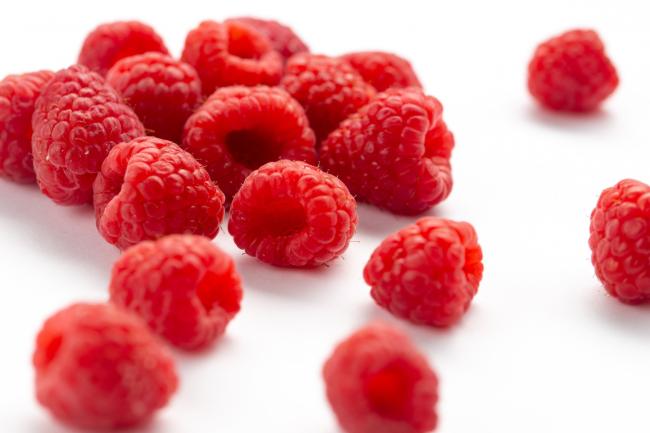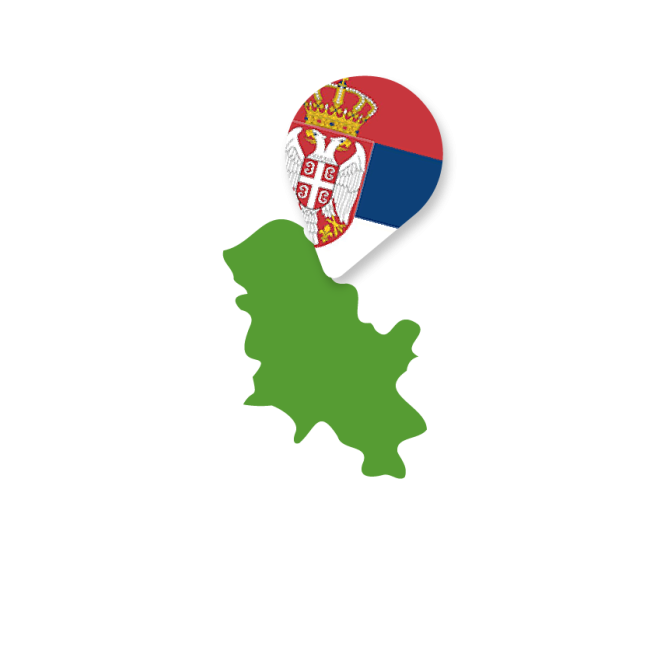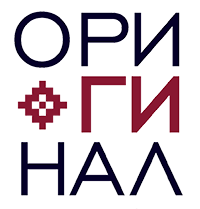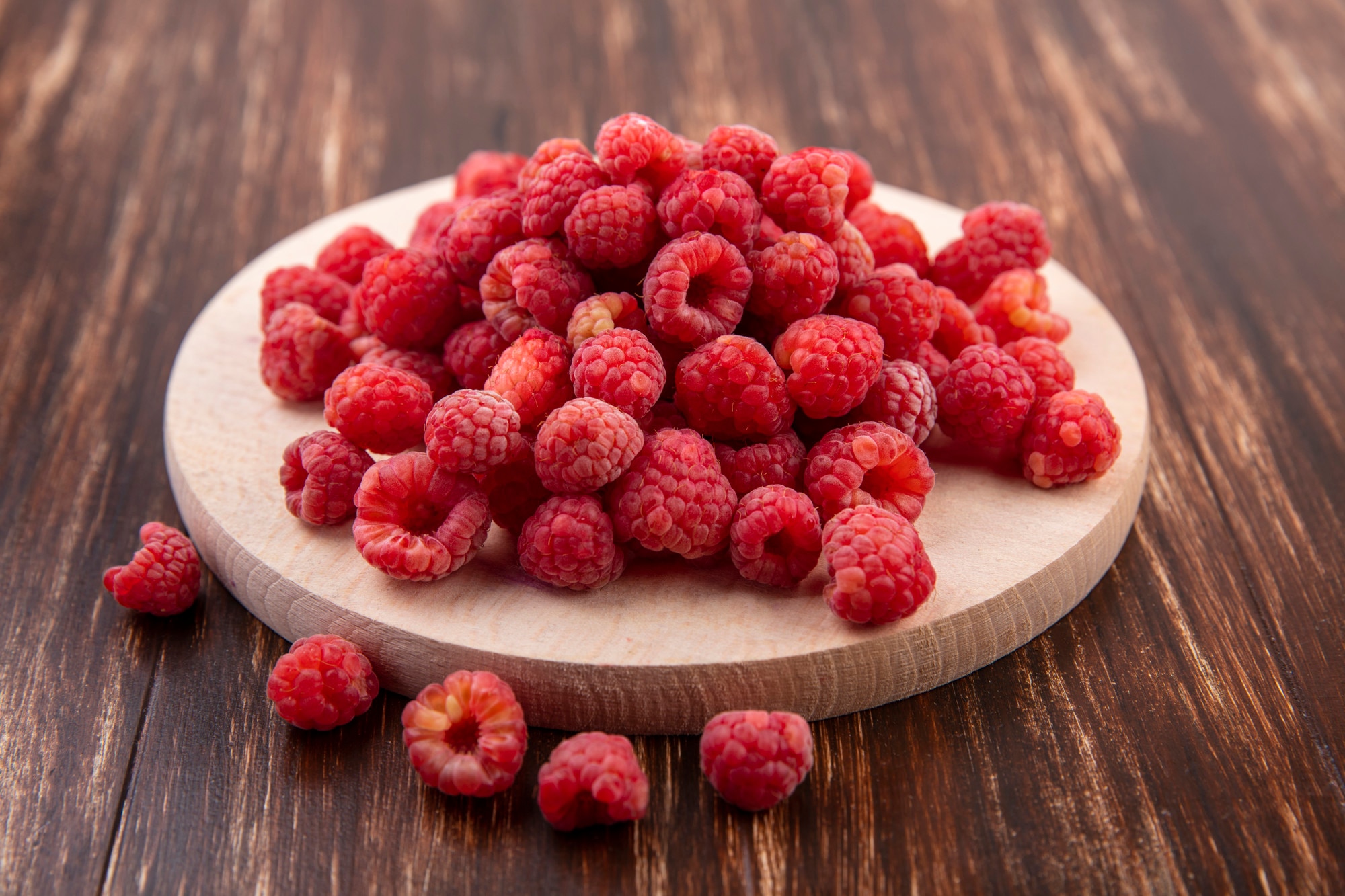


Objective
The Fraud Problem
High quality of fresh and frozen Arilje raspberry is widely recognized. Therefore, a usual fraud related to this valuable product is the mixing with lower quality raspberries from countries with less reputation providing fruits with different quality and with lower prices (Poland, Chile, etc.) According to Serbian regulations on geographical indications and rules concerning approved certification bodies (CB), there is no requirement for a unique and comprehensive database for GI products. Buyers and consumers can obtain fragmentary information on GI products on the producers’ websites, CBs and the Ministry of Agriculture. It is very complicated for the ordinary consumer to verify information on GI product. In addition to this, there is no unified data on export buyers – both quantitative and qualitative, like the reasons why they want to buy Arilje raspberry and the means how they recognize the specific quality of these fruits? (1) The Low GI valorisation due to the poor enforcement and control discourages commitment to certification and quality management at producer/cooling chamber level; (2) The Inconsistent quality of products – cases of poor quality governance outside of the GI certification, harming reputation to the overall Arilje raspberry known quality; (3) The majority of operators has small scale with insufficient coordination and immature governance and management practices. Within the current certification system of Arilje raspberry GI, cooling chambers are carriers of the group certification, implementing the internal control. The current percentage of certified producers is not large enough to influence increasing prices for certified raspberries. At the same time, good traceability and control systems will assure quality and prevent/ detect frauds that are currently happening on the domestic and foreign markets. Additionally, introduction of quality systems create additional cost for producers, while prices are not sequencing this increment.
Current Situation
Raspberries are mainly grown on small family-business farms, where the farm owners and their families themselves carry out all necessary activities, hiring seasonal labour during harvesting time (labour intensive due to the hand picking). The marketing chain of primary producers is short and ends at the nearest cool storage90. Very small portion is sold as fresh, while as processed raspberries are mainly sold as jams, juices or as dried. Foreign buyers have recognized the specific quality of Arilje raspberry, while the domestic market is still not fully aware of its extraordinary quality. Nevertheless, during the Covid 19, raspberries became more present on the menu of domestic consumers, due to their high nutritional and immune building characteristics. The quality of the raspberries is a result of favorable climate conditions and the knowledge and skills of producers known as “Arilje method” of raspberries cultivation. Additionally, hand picking brings high additional value, resulting in high quality product and percentage of whole-fruits portion in the final product. Arilje raspberries are immediately frozen after picking and cleaning to conserve their freshness and ready them for further processing while increasingly raspberries are also produced to be sold as fresh or dried products, adding more value. Processors (cold storages with freezing capacities) are the central point of raspberry but also stone fruit value chains for the frozen market. They are collection points, in majority of cases organizers of production and they do marketing for the product. The majority of berry fruit export from the region is exported via EU intermediary import companies that further supply the EU processors or retail. The other export path is direct marketing from the company owning the cold storage to the EU retail and processors. Large supermarket chains in the EU are contracting frozen fruit procurement with intermediary - trading companies in Western Europe. They hope to provide security of delivery, greater responsibility, easier cooperation (due to language), etc. Cold storage capacities with freezing regime in Serbia are about 310.000 tons. In Serbia, the process of concertation of processing facilities is ongoing. The companies with cold storage capacity over 3000 t are sharing 51 % of total cold storage capacities in the country.
The Alliance Solution
The ALLIANCE solution will improve the traceability system and the monitoring of quantities to continuously verify their origin, integrating organisational and capacity development of the producer organisation/s for future management of the system. In order to provide uniform and comprehensive information on PDO Arilje Raspberry, a user-friendly database will be created and updated regularly. This database will be the property of the association Original Srbija, administrated by CBs performing certification of Arilje raspberry GI. Agreec data will be made publicly available for buyers and consumers to increase awareness of the quality guarantee and update generic understanding of raspberry quality related to its origin. The database content will be developed and update with relative data in cooperation with VC stakeholders aiming at the automatization of the food product traceability and at preserving quality assurance. (Information will include various features such as the producers’ identity, the area of the orchards, the surface and the quantities of certified raspberry, the status of the certificates, the designation markets, etc.). Fast, accurate and low-cost techniques will be used for the physio-chemical characterization of the Arilje raspberry and the distinguishment from the raspberries originated from other regions and countries. This characterization will rely on specific food attributes such as color (L*, a*, b*), °Bx (%), pH etc., and they will be used in order to form a representative dataset needed for the multivariate data analysis. Based on the obtained results in correlation with sensory properties, producer organization will create a reliable tool based on Blockchain technology for differentiating Arilje raspberry fruits from those of other origin and quality. Following the needs of Arilje raspberry producers for fast, accurate and cost-effective methods, alternative to classical sensory analysis, rapid descriptive analysis method will be developed in order distinguish raspberries of different quality. The panel consisted of sensory experts will choose a number of sensory attributes that best describe differences between the samples. Afterwards, relevant stakeholders involved in Arilje raspberry value chain will be educated and trained to apply this method in the field. Currently, buyers (especially international level) know the unique characteristics of the Arilje raspberry and its quality. Therefore, to determine the correct and most appropriate parameters for building differentiation tools, we will rely on qualitative analysis to assess their knowledge and needs. The derived information will be used to create tools and policies to raise the awareness among local consumers, reinforce the marketing of the Arilje berries demonstrating its exceptional quality, and to mitigate the unfair competition with lower quality fruits. The whole process will be highly participatory, with the main focus on producer engagement and producer organisational development.
